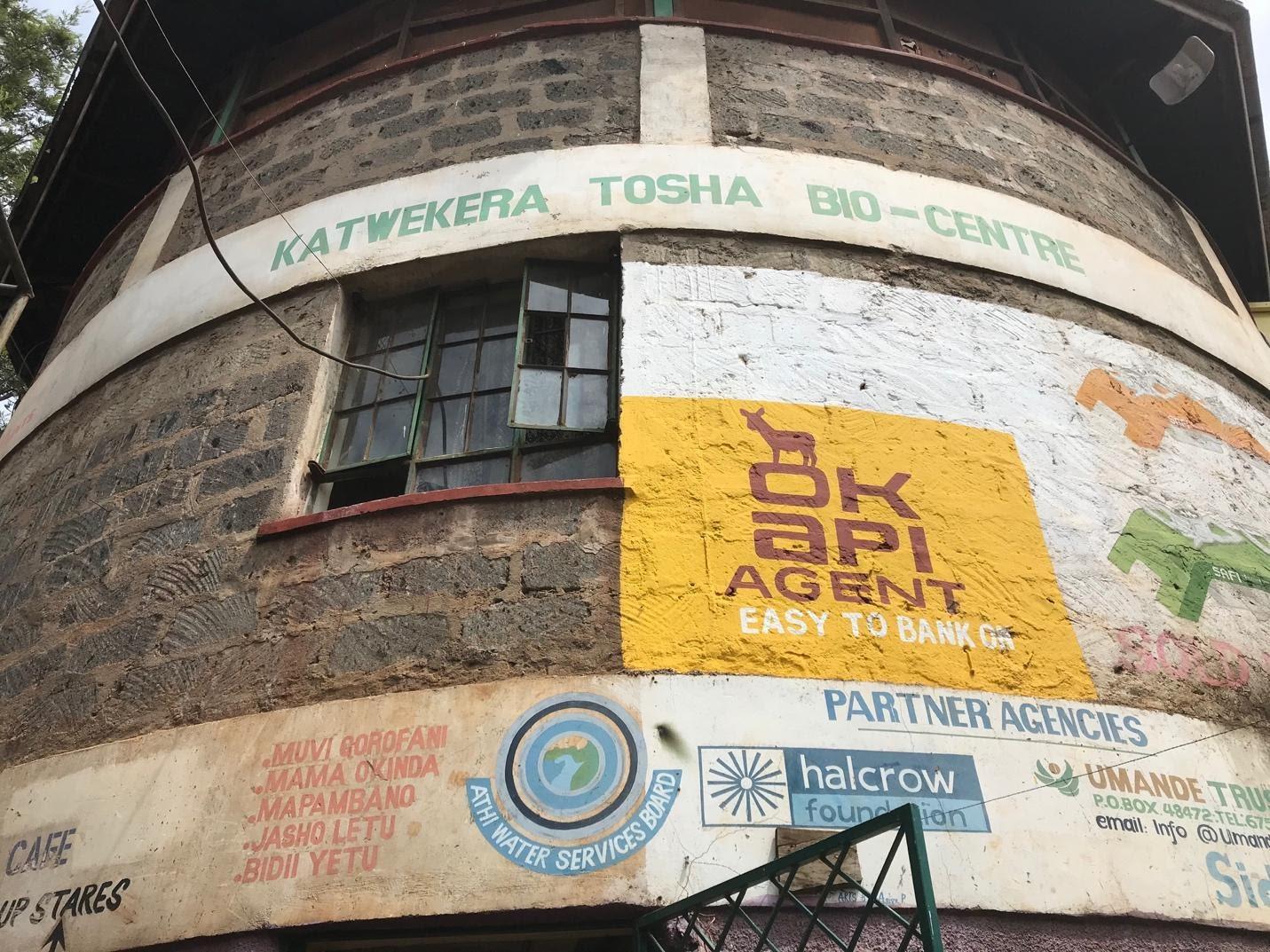Challenges in Kibera
In a lot of impoverished areas in the world access to clean water, energy and sanitation is rare. Estimates from Kibera, the biggest slum in Kenya with a population of approximately 250,000, show that there is one toilet available for about 2,500 residents. Without toilets to relieve themselves, people “use any means, whether it’s a [plastic] bag or a can,” explained Fred Amuok, Community Liaison from the Kenyan rights-based organization Umande Trust. Most do so under cover of darkness, then simply toss the waste aside (Kushner, 2016). This is one of the factors that causes disease outbreaks and pollution to their own environment.
Residents living in poor sanitation areas not only experience poor health but also slow economic growth. Studies show that Kenya loses US$324 million each year in missed work hours due to sickness brought about by poor sanitation (Kushner, 2016). According to the sanitation company Sanergy, four million tonnes of fecal sludge escape into Kenya’s waterways and fields every year. The most recent data released by World Health Organization (WHO) shows a clear correlation between mortality rate and unsafe water, unsafe sanitation and lack of hygiene as every year 24,813 lives are lost as a result of exposure to such conditions
Combating sanitation challenges through community based bio centers
In Kibera 18 bio centers were constructed by Umande Trust, a rights-based NGO. Umande Trust provides sanitation and energy in some of the most impoverished areas in the world. The NGO constructs bio centers in these areas and, after completing the building, transfer ownership to community groups. Members of the community pay a small fee to use the facilities i.e the shower and toilets. The human waste collected in the bio-digester (in the basement of the bio center) is used to produce biogas which can be used for cooking. In total, Umande Trust constructed a total of 88 bio centers located in 14 counties in Kenya which hold up to 35,000 daily customers, generating a daily income of $1330. (Umande Trust, n.d.)
Umande Trust collaborates with local community members and tailor make the facilities to specific wishes of the community to improve acceptance in these strong societies. By working under the principles of inclusion, engagement, neutrality and development, Umande Trust ensure basic needs are met now and in the future. A part of the facilities provide also energy provision and a hall for hire, library, office space, a cybercafé, kitchen with biogas stoves, and water vending. In this way the bio center is more than only a sanitation facility. It not only generates a job for the caretaker of the bio center, but it will also provide a place where people can come together and exchange ideas.

The student project
CFIA students from the minor FI4SGD assisted Umande Trust with their next steps during their field work from November 2019 - January 2020. In a multidisciplinary team of three, the team worked together on the implementation of a new business model, in order to help the NGO transition to a social enterprise status. The team closely engaged with the community and bio centers’ management through visits and interviews to collect feedback and establish a way forward.
During the first weeks the team gathered information in Kibera by visiting the bio centers and attended community meetings at bio centers to collect feedback. The team also attended the opening of a new bio center in November 2019.
In the next phase of the project the team focused on giving the business model a boost by mapping out the existing Business Model Canvas (BMC) and drafting different new BMCs; briquette BMC, fertilizer BMC, dividend BMC. The team got started on improving the website and evaluated the technological process of the bio-digesters in the facilities.
In the final phase of the project an impact evaluation report has been made and the team established new pivotal partners to implement the business model. In order to write the impact report the team drafted a questionnaire and interviewed caretakers of bio centers. The conclusions of the findings are published on the Umande Trust and CFIA websites.
Sustainable Development Goals
Umande Trust aims to eradicate flying toilets and reduce the amount of open defecation. Disease outbreaks have reduced, and individuals now have greater access to clean water, toilets, and bathrooms. Additionally, the project helps to promote renewable energy in the form of biogas as a clean and cheap alternative to the usual wood, charcoal, or kerosene. Finally, employment is created throughout the entire process, from construction to management of the bio centers. This employment has helped build capacity and develop the community.
Project Team
Academic Supervisor
Dr. Elsie Onsongo, CFIA Centre Manager Kenya
Professor Peter Knorringa, CFIA co-director / ISS
Partner organizations
Student Research Team
Jackie van Rijn (Leiden University – International Relations and organisation)
Na Haby Stella Faye (Leiden University – International Relations and organisation)
Pepijn Kruseman Aretz (TU Delft – Technology, Policy and management)
References
- Kushner, J. (2016). From human waste to community space | Impact Journalism Day 2018. Retrieved January 13, 2020, from 2016-06-27 website: http://impactjournalismday.com/story/from-human-waste-to-community-space/
- Umande Trust. (n.d.). Umande Trust. Retrieved January 13, 2020, from http://umande.org/
- World Health Organization. (2016). WHO | By category | Burden of disease - SDG 3.9.2 - Mortality rate attributed to unsafe water, unsafe sanitation and lack of hygiene (exposure to unsafe Water, Sanitation and Hygiene for All (WASH)). WHO. Retrieved from http://apps.who.int/gho/data/node.main.INADEQUATEWSH?lang=en
